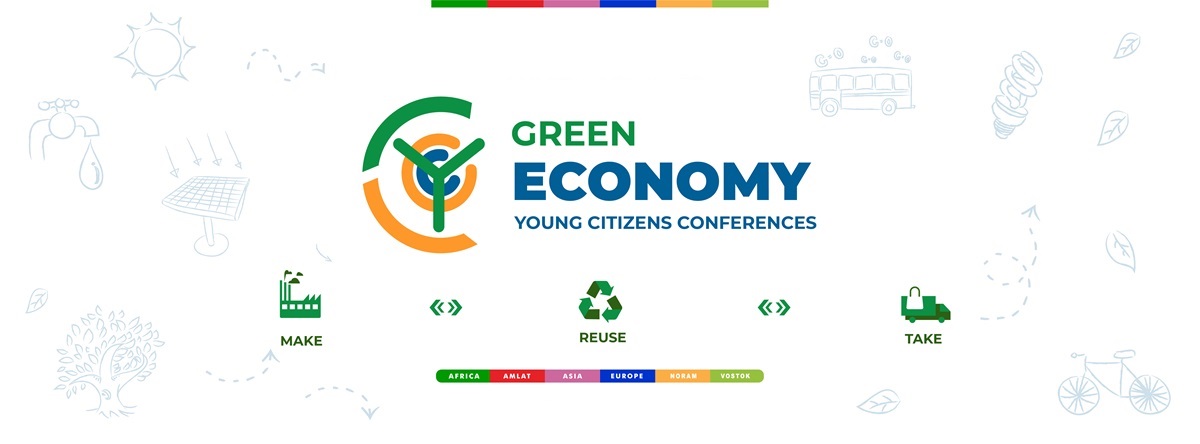

MILSET Young Citizens Conferences (YCC) are dedicated to the views and concerns of youth regarding the social impact of science and technology on the modern world, gathering their voices from every part of the globe and encouraging them to actively enter the discussion.
The exponential growth of new technologies and scientific knowledge has generated new and exciting possibilities; however, this has also raised new ethical, social and ecological issues. We believe that the open-mindedness of young scientists combined with their sense of social responsibility can yield important contributions to the dialogue.
The primary goals of these conferences are achieved through a three-step methodology: Concerns, Discussion and Actions.
Throughout the year, local, regional and national youth STEAM organisations around the world are invited to organise YCCs on the topic to encourage youth to discuss their thoughts and propose suggestions based on their knowledge and experience.
To keep the conference discussions as efficient and fruitful as possible we encourage you to follow this three-part methodology:
The Standards should be applied for a YCC held during:
We encourage the organisations and institutions to use the Standards as a guideline to organise their event for any different levels.
Find more information on the YCC standards document bellow.
The concept of a green economy or circular economy is like a cool puzzle for young minds, all about making our planet healthier and happier. Instead of just throwing things away, we find creative ways to reduce waste and keep using stuff over and over again through recycling and regeneration. It's like giving things a second chance to shine!
Exploring the ins and outs of the circular economy isn't just interesting, it's super important for us. By learning about it, we understand why it's crucial to lessen our impact on the environment. Getting involved in these conversations isn't just about talking – it's about taking action!
On the other hand, achieving a green economy is undoubtedly an ambitious goal, but it's not without its challenges. This makes us wonder; How can we resolve the dilemma between a green economy based on energy efficiency and energy-intensive economic growth that creates jobs? How to reinvent a new economic model that considers a finite Earth with necessarily limited natural resources? How truly sustainable can our world be made?
Here are some other questions to think about for further proposals:
A lack of awareness and understanding of the principles of sustainability and green economy can impede progress. Comprehensive education and awareness programs are vital for fostering a mindset shift. With many challenges and increasing expectations from educators, how can we raise awareness and cross the gaps between generations without putting too much burden only on educators? How can we promote and streamline the introduction of sustainable practices in daily life? Can you think up and propose creative solutions to promote a circular economy mindset in your communitiy? What strategies could be implemented to enhance public understanding of sustainability and the green economy concepts? What changes in consumer behavior could be most beneficial in promoting sustainable practices?
Costs associated with transitioning to sustainable practices can be a barrier for businesses and governments. What solutions do you propose for the considerable challenges of balancing economic viability with long-term environmental benefits?
The green economy often focuses on implementing environmentally friendly practices without fully considering the complexities of ecological systems. Failure to understand ecosystem dynamics and interdependencies can lead to unintended consequences, such as disrupting habitats or causing biodiversity loss. Should economic development always prioritize environmental concerns, or are there situations where economic growth should take precedence over ecological preservation? How can youth advocate for more holistic approaches that consider both economic and ecological factors in decision-making processes?
Achieving true sustainability often requires international cooperation. Challenges like climate change and resource depletion are global issues that demand coordinated efforts across borders. How do we build towards sustainability across the borders of a polarized world? Why is global cooperation important in implementing effective environmental policies? How can governments work together to address cross-border challenges related to sustainability? How can youth contribute to shaping policies and practices that prioritize both economic prosperity and ecological sustainability in their communities and beyond? What strategies can be employed to overcome barriers to global cooperation, such as differences in economic priorities, political ideologies, or cultural values?
In what ways can global cooperation on green economy initiatives contribute to addressing broader global challenges, such as poverty alleviation, social inequality, and public health?
Some sustainable solutions rely on cutting-edge technologies that may not be widely available or economically feasible. What advancements in technology are crucial to overcoming these hurdles? How do we secure enough funding for them? How can technological advancements be accessible and beneficial to communities worldwide in the context of the circular economy? Are there potential risks or drawbacks associated with relying heavily on technological solutions to address environmental challenges in the pursuit of a green economy?
NGO’s, universities, schools, or any group of youth can organise a YCC and then submit their conclusions to the YCC report form. MILSET defines youth as people between 13 and 25 years of age.
The YCC could also be held in an online format using one of the video conferencing services.
We advise you to follow the YCC methodology: Concerns, Discussion, and Actions to integrate the results with others from around the world. Furthermore, it is important to follow carefully the instructions for submitting results for your contribution to be accepted.
Watch more
Organise a successful YCC
Find the step-by-step to organise YCC debate sessions in your State, Country or Region.
As a YCC organizer sum-up the results of the discussion and fill in the report form.
Make short videos of participants during the activity, and send the best one to ycc@milset.org which will be posted on the MILSET website and MILSET Facebook.
The Youth Citizens Conferences on Climate (former Youth Climate Conferences) is the first world event dedicated to visualise the views and concerns of youth on climate change. We are an alliance of young professionals, dedicated to create opportunities for the global youth to have an substantial impact on their own future.
The activity was coordinated by MILSET and the Danish Youth Association of Science (UNF).
In the end of 2009, world leaders discussed a new treaty to protect our climate at the UN Conference on Climate Change in Copenhagen (COP15).
As the youngsters of this world, and the future of this planet, it is up to you to make sure that your opinions and concerns are taken care of - And we provide you with various opportunities to do so!
From August 2008 to August 2010 various climate related activities for youngsters took place. The activities included a worldwide series of youth conferences and workshops, an online campaign, and various happenings and events organised by our global partners and regrouped 17.000 participants.
The Young Citizens Conferences on Chemestry are dedicated to express the views and concerns of youth regarding their concerns on water usage, accessibility and others by gathering their voices from every part of the globe encouraging them to enter actively the debate.
The Young Citizens Conferences on Water are dedicated to express the views and concerns of youth regarding their concerns on water usage, accessibility and others by gathering their voices from every part of the globe encouraging them to enter actively the debate.
We are confident that the open-mindedness of young people combined with a scientific approach will yield important contributions. Our primary goals will be reached through a series of activities following a 3 step methodology: "Observations, Causes and Actions".
The topic has been chosen following the decision of UN to defined 2013 as the International Year of Water Cooperation and stressing on the key role of this primary resource in everyone life.
The Young Citizens Conferences on Farming are dedicated to express the views and concerns of youth regarding their concerns on farming situation, evolution and others by gathering their voices from every part of the globe encouraging them to enter actively the debate.
We are confident that the open-mindedness of young people combined with a scientific approach will yield important contributions. Our primary goals will be reached through a series of activities following a 3 step methodology: "Observations, Causes and Actions".
The topic has been chosen following the decision of UN to defined 2014 as the International Year of Family Farming and stressing on the key role of this primary resource in everyone life.
The Young Citizens Conferences on Energy are dedicated to express the views and concerns of youth regarding their concerns on energy situation, evolution and others by gathering their voices from every part of the globe encouraging them to enter actively the debate.
We are confident that the open-mindedness of young peoplecombined with a scientific approach will yield important contributions. Our primary goals will be reached through a series of activities following a 3 step methodology: “Observations, Causes and Actions”.
The topic has been chosen following the decision of UN to defined 2015 as the International Year of Light and Light-based Technologies and stressing on the key role of this primary resource in everyone life.
The Young Citizens Conferences on Science Learning by MILSET are dedicated to express the views and ideas of youth regarding their concerns on science learning, science education and accessibility, science means of communication and others by gathering their voices from every part of the globe encouraging them to enter actively the debate.
We are confident that the open-mindedness of young people combined with a scientific approach will yield important contributions. Our primary goals will be reached through a series of activities following a 3 step methodology:
Robots and intelligent systems are being introduced everywhere. They work in our factories, play with our children and help run our houses. You no longer need a human assistant to check-in for your flight or to translate your text into another language. Robots can already do many things, but how about tomorrow? In the future, will we find ourselves surrounded by robots doing everything? If so, what will we – humans – do then?
Here are some questions we invite you to think about. There are many more that you can propose for discussion:
As a YCC organiser sum-up the results of the discussion and fill in the report form
Make short videos of participants during the activity, and send the best one to ycc@milset.org which will be posted on the MILSET website and MILSET Facebook.
If you are going to send a video please consider the following information:
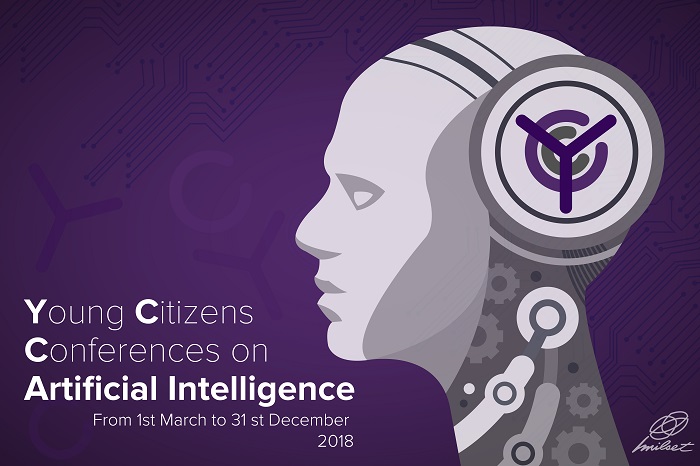

In a hyper-connected planet, the dreaded fear of a pandemic caused by a new hyper contagious virus has been confirmed. COVID-19 confined several billion people for several weeks and shut down the economy. The planet is breathing with difficulty. It’s time to think and possibly… reinvent a new world!
The pandemic has drastically modified our familiar lifestyle. Changes are happening in every sphere of life. Almost all social institutions - education, employment, health care, family - are now transformed. How can we adapt to these changes? Will they be irreversible or not? Can we somehow influence them?
Here are some questions we invite you to think about:
*there are many more that you can propose for discussion
Globalization: Quarantine created obstacles for the free movement of people, goods, and capital. Will this ultimately lead to a rejection of globalization? Is it right to unite and cooperate in this situation? Or should each country do everything possible to provide for its own needs? Should all countries help each other to deal with the pandemic and overcome its aftermath?
Digital lifestyle: We are now mainly confined to our homes. Work and education, participation in conferences and fairs, visits to cultural events are all going on online. Shops and restaurants have switched to delivery mode. Will, we ultimately return to the lifestyle we were used to? Which spheres would benefit from staying in an online format, and which would not? What could be the risks of this new way of life?
Role of science and medicine: Thanks to the efforts of doctors and scientists, we hope to contain the pandemic. Which tasks should be addressed by science to cope with the virus, and to prevent similar situations in the future? Do we have enough reliable information from scientists and doctors about the virus now? Will governments and societies treat scientists with the same respect and listen to their advice equally attentively after the pandemic?
Environment: Today we may say that, on the one hand, the pandemic has led to a certain positive environmental impact. We have stopped flying and reduced our use of vehicles. Most industries stopped for a while and we have reduced consumption. All the major events of 2020 have been cancelled. These changes have definitely decreased the pressure on the environment. On the other hand, when the pause ends the economy will restart and focus will shift to the economic impact. Will we abandon green technologies and renewable energy to accelerate the economic recovery? How can we avoid the environmental problems that might come after the pandemic? What is the role of the green economy in the post-pandemic world?
Space: Because of the pandemic, many space programs have been cancelled or postponed. Indeed, we now have so many problems on Earth, does it make sense to continue investing in space exploration? Do we still have a future in space? Or could new space expedition and space related discoveries bring new technologies that might help us to improve our current situation?
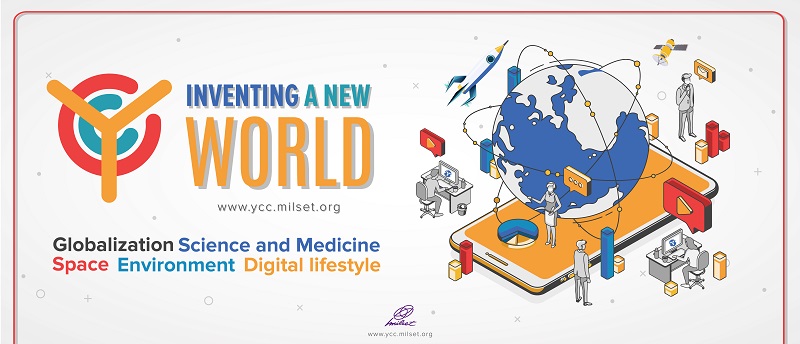

Today more and more people wonder if we should keep spending so much money exploring space without any real impact on humanity's future. We can't comfortably talk about reaching other star systems with present-day knowledge. At the same time, we have so many problems on Earth (climate changes, nuclear weapons, pandemics, world crisis and more) that we need to pay attention to and invest resources in scientific research.
It is now known that the space-leading states are ready to put fewer and fewer funds into space exploration. Does it mean that we have no future in space? Have we reached the limit of human abilities to make a scientific breakthrough or the limit of humans willing to spend money on programs that won't bring profit?
On the other hand, other grounds are yet to be developed, such as space tourism or space technologies development. In this regard, Elon Musk is contributing to the latter by investing his resources.
Talking about the benefits of space exploration, we are witnessing the growth of interest in science and technology among young people, thanks to the new space expedition and space-related discoveries. We can't ignore that exploration brings new technologies that might help us solve some global or everyday problems.
Here are some questions to think about for further proposals:
Moon, Mars and planets of the solar system: Do you think it is a good idea to colonize them? What would be the positive and negative outcomes of doing so?
Space Tourism: What are the pros and cons of space tourism development? Will mass space tourism bring new life to the space industry? Could it be the source of environmental problems?
Space Debris: Do you think space debris is a serious problem now? Do you think it could become a severe problem in the future? What do you propose to reduce it?
New Materials: Can new planets become sources of new minerals or new elements and materials? And if so, what should be done to reach this goal? Do you think it makes sense to bring resources from outer space from an economic perspective?
International collaboration: What are the advantages and disadvantages of international cooperation in space exploration? Could it set guidelines for collaboration on Earth?
Space jobs of the future: The space industry is growing so fast food engineering, mining specialist, media specialist, space tourist managers, Space Medicine, space architects and many other jobs will be required in the future. Which careers do you think young people should be focused on to prepare for the future? What is the challenge for education specialists in the world?
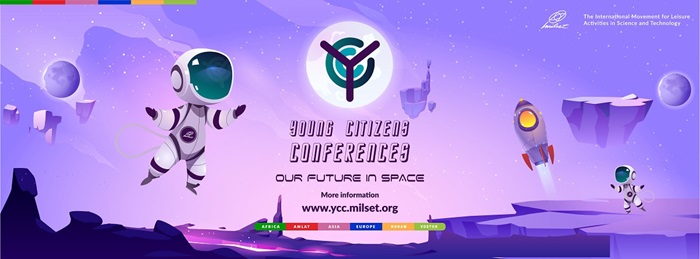
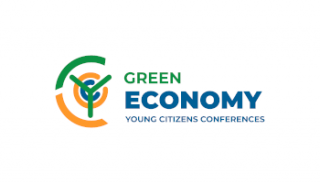
Type: Congress / forum / workshop
Level: International
Audience: Youth
Ages: 13 - 25
Email: ycc@milset.org

Type: Congress / forum / workshop
Level: National
Audience: Youth
Language: Arab - French

Type: Congress / forum / workshop
Level: International
Audience: Youth
Registration deadline:
Email: ycc@milset.org

Organisers: MILSET Asia
Dubai, Emiratos Árabes Unidos
Type: Congress / forum / workshop
Level: International
Audience: By invitation
Language: English
Registration deadline:
Email: esa2022@milset.org
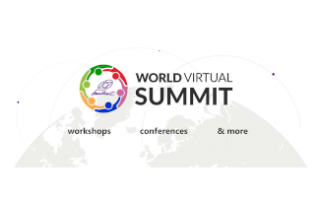
Type: Congress / forum / workshop
Level: International
Audience: Adults
Email: berenice.suarez@milset.org

Type: Congress / forum / workshop
Level: International
Audience: Youth
Ages: 13 to 25
Fee: Free
Language: English
Registration deadline:
Email: ycc@milset.org